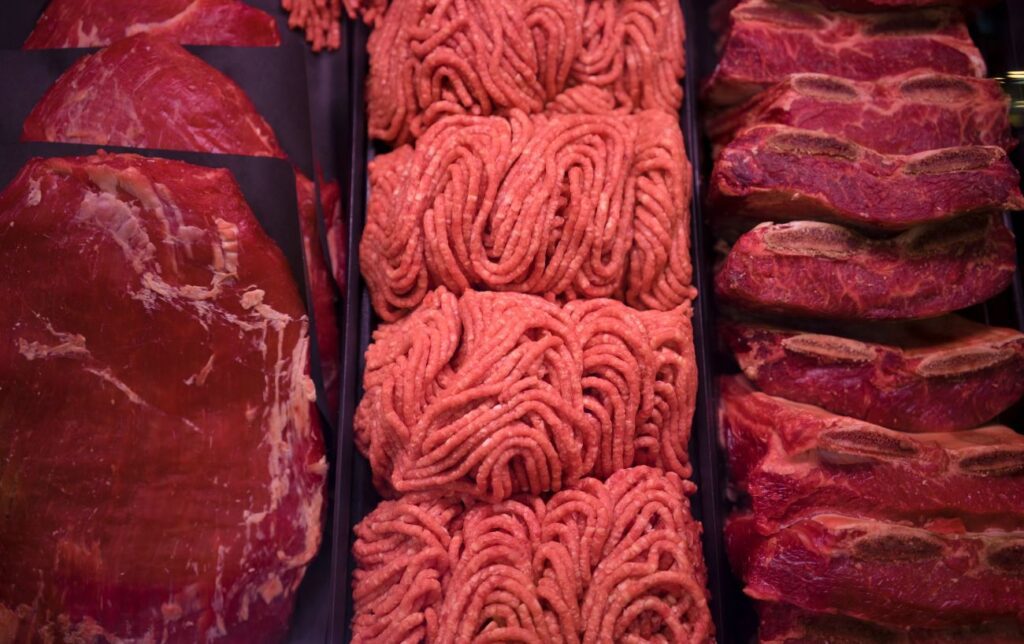You’re putting in the miles, fueling your body properly, and maintaining a clean supplement regimen, yet elite runners still find themselves pondering: Could a seemingly innocuous steak dinner lead to a failed drug test?
Recent research indicates that the answer is likely “no,” though the apprehension behind this query isn’t entirely unfounded.
Understanding the Concerns
For amateur runners who are simply logging miles for a local 5K or half marathon, these considerations might seem excessive. However, for professional athletes, Olympic hopefuls, or age-group competitors at an international level, anti-doping regulations are stringent, with alarmingly low thresholds for substances detected in their systems.
There have been instances where athletes claimed a positive drug test resulted not from doping but rather from consuming contaminated meat. This ongoing issue led a research team from UCLA’s Olympic Analytical Laboratory and Texas Tech University to closely investigate this claim. The study involved analyzing beef, pork, and chicken from grocery stores across eight major U.S. cities for traces of performance-enhancing drugs.
Findings revealed the presence of some substances, but not at levels sufficient to trigger a failed drug test.
Research Methodology and Analysis
Utilizing advanced testing methods like liquid chromatography coupled with high-resolution mass spectrometry—deemed the gold standard in anti-doping—the researchers scrutinized various meat products for specific banned substances, including:
- Ractopamine: A growth promoter that aids in developing lean muscle in livestock.
- Trenbolone: A potent anabolic steroid widely used in livestock production.
- Estradiol: A hormone naturally present in the body, yet prohibited in sports contexts.
While the FDA permits certain limits for these substances in U.S. meat, regulations dictate that producers must adhere to withdrawal periods before slaughter to minimize residue levels.
Key Findings from the Study
What did the research uncover?
- Low levels of ractopamine and trenbolone were detected in some beef samples.
- Pork and chicken generally tested negative for these substances, appearing almost entirely clean.
- None of the meat exhibited drug levels near the thresholds defined by World Anti-Doping Agency (WADA) standards.
Dr. Elizabeth Ahrens, director of the UCLA Olympic lab, concluded that “the likelihood of positive tests resulting from consuming store-bought meat is minimal—provided individuals maintain a typical diet.”
Historical Context: The Tainted Meat Dilemma
Despite the reassuring findings, the concern over tainted meat is not without precedent.
In 2011, numerous Mexican soccer players faced suspension after testing positive for clenbuterol, a banned steroid often found in contaminated meat. WADA eventually exonerated them, acknowledging that meat contamination was both real and prevalent in Mexico at that time.
The track and field community has not been immune either; Colombian race walker Lorena Arenas cited tainted beef as the reason behind her positive test, a claim WADA later verified. In a notable instance from 2017, over 100 Chinese athletes were cleared after tests highlighted high levels of clenbuterol in the meat supply in China.
Implications for Runners
While the majority of runners won’t face these concerns, athletes within testing pools or those vying for national team rankings must remain vigilant. A false positive can result in drastic consequences—temporary suspensions, loss of earnings, and a labyrinth of legal issues.
This study cultivates a sense of reassurance among U.S.-based runners, illustrating that domestic meat, particularly pork and chicken, typically poses little risk in terms of doping violations.
Practical Safety Tips for Competitive Athletes
Here are some prudent habits all runners, especially those in high-stakes competitions, should consider:
- Exercise caution when traveling overseas, especially to regions with less stringent food safety standards.
- Opt for U.S. meat during preparatory phases for significant competitions.
- Choose pork or chicken over beef when engaged in intensive competition schedules.
- If you are part of the testing pool, inform USADA of travel plans to areas with historical contamination issues.
The Broader Context of Clean Sports
For years, the mantra has been: “You are responsible for what enters your body.” While this remains accurate, studies like this one indicate a shift toward acknowledging real-world dietary factors and regional variations in food safety by anti-doping agencies.
This research, funded by the Partnership for Clean Competition, is part of a larger movement advocating for smarter, evidence-based enforcement practices instead of rigid punishments based solely on test results.
Researchers are even working on follow-up studies focusing on imported meat sold within the U.S., which could represent the next challenge in minimizing false positives and ensuring clean results for athletes.
In summary, competitive runners can likely enjoy their post-race meal without anxiety about doping repercussions, given the findings of this study. However, it serves as an important reminder of the fine balance athletes must maintain, as even minute levels of banned substances can jeopardize careers. Remaining educated and vigilant is a critical component of competitive sports.
